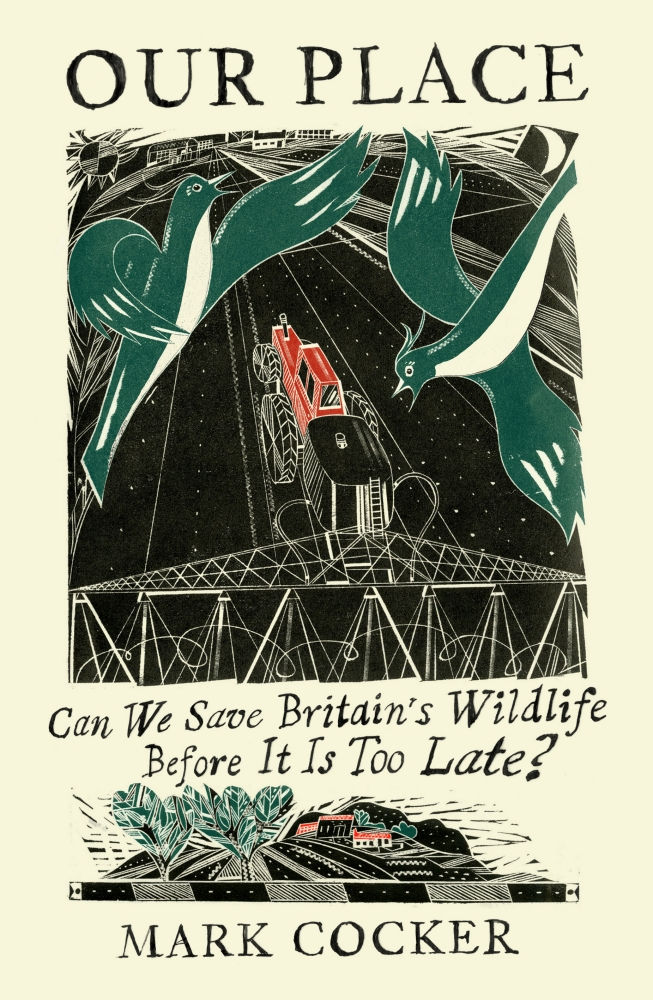Book Review: Our Place by Mark Cocker
- Apr 26, 2018
- 3 min read

Mark Cocker covers remarkable ground in his account of environmentalism in Britain. It is a journey in time and place that loops back and jumps forward in order to fit the pieces of the complex conservation puzzle together. The hard facts (of which there are plenty, and many of them bitter pills to swallow) are deftly woven with an emotive description of places and nature that really make you feel the impact of the cold statistics. Our Place serves as a sufficiently detailed overview of British nature conservation, enabling a thorough understanding of the development and role of our environmental organisations and designations.
By blending statistics, history, politics, ecology, geography and a personal account of people and places, Our Place offers a meandering tone and content, so it rarely gets bogged down (even in the chapters on bogs). Whilst it undoubtedly tries to be a lot of things at once, it achieves most if not all of them. All that’s missing is a handy map (à la EH Shepherd’s 100-acre wood in Winnie the Pooh) to help keep track of the many places referred to.
The paradox at the heart of the book is the severe loss of British nature that doesn’t show signs of stopping, despite our unparalleled support for nature, as demonstrated by the massive memberships of environmental and wildlife charities.
Cocker has employed some beautiful turns of phrase to help bring the cause to life – Our Place is lyrical and poetic in places (“great foul glops of marsh gas engulf you”), but direct when it needs to be. The statistics are well incorporated and readable: 0.3% of the population owning 69% of the land being one such fact.
Unafraid to speak his truth, honest criticisms are given of the weaknesses of the environmental sector: too meek, obscure, unintegrated and over-acronymised. Interestingly, the author criticises the technical language of the sector as a barrier to wider engagement, yet this book frequently does the same (to cherry pick an example: “anodyne bureaucratese” does not mean a lot to most people). He recommends simplifying the language of environmentalism, in fact it’s a key wish of his, yet uses the phrase “Orwellian clarity” to make his point, which requires its own footnote of over 100 words to explain. Does this suggest perhaps his audience in mind is predominantly individuals already in the sector, and that his purpose is to prescribe how they should present themselves to the outside world, rather than a book written for the interested layperson?
One area highlighted throughout is the power held by large-scale landowners. There’s an increasing disparity between a small few with vast acres of land to their name and most citizens with little-to-no land. Through land-based subsidies, the few are getting richer, and with land and money comes further influence and power, seats on boards and words in ears, bending the policy and actions of the decision-makers.
Another focus is, unsurprisingly, agricultural subsidies, and their failure to meet their own goals, let alone improve the environment on the scale required. The book offers the reader succinct explanations of things you half knew but didn’t quite want to admit (i.e. quite how far there is to go to halt, let alone reverse, the damage).
The book vows to look to the future too, and pays up on this promise mainly in the last chapter, which sets out ten key truths to acknowledge and act upon. Here, Cocker cuts out the autobiographical, descriptive passages in favour of the real grit. These act as timely motivators for action, and are readable in isolation from the rest of the book. This final section is perhaps the most powerful, so it’s worth reading to the end!
Emily Seccombe likes looking for newts, is interested in how we place value on nature, and wants to maximise her impact in nature conservation through her career. She currently works for the RSPB as Project Officer on the Oxford Swift City project, having previously worked as an Academy Ranger for the National Trust.




Comments